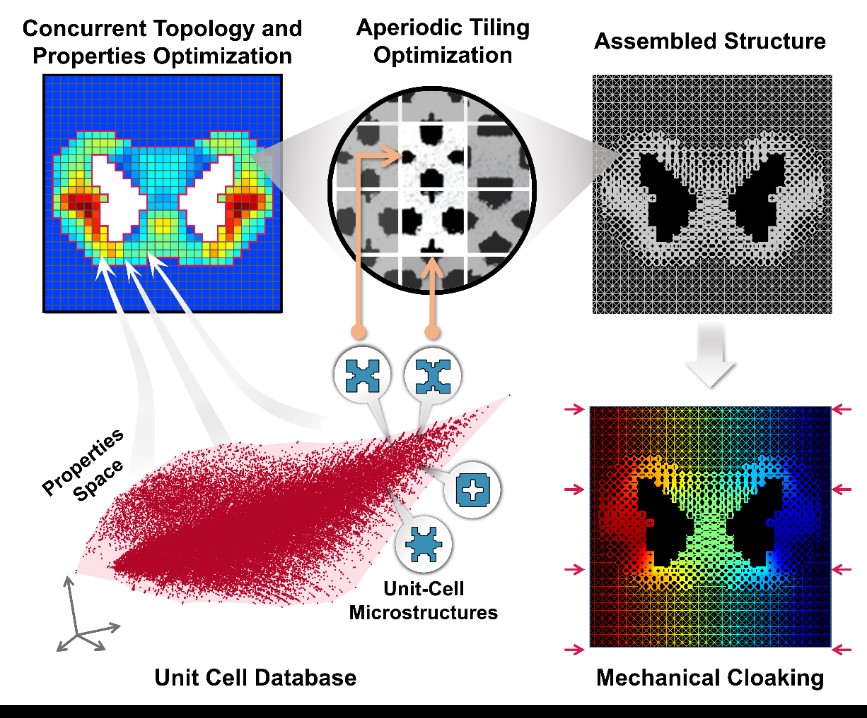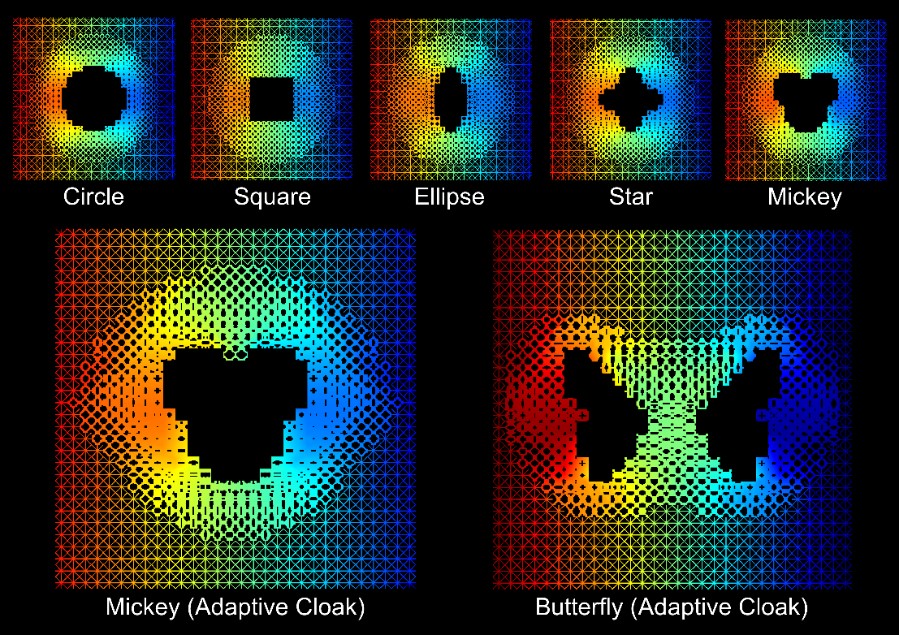
News

News
Recently, Prof. Ping Zhu from the School of Mechanical Engineering at Shanghai Jiao Tong University collaborated with Prof. Wei Chen at Northwestern University, and Prof. Chiara Daraio at California Institute of Technology to develop a fundamentally different approach by exploiting data-driven designs to offer timely, customized solutions to mechanical cloaking that were previously difficult to obtain. A paper describing the work, titled “Mechanical cloak via data-driven aperiodic metamaterial design,” has been published in Proceedings of the National Academy of Sciences (PNAS). The first author of this paper is Liwei Wang, a Ph.D. candidate supported by the Zhiyuan Honors Program for graduate students of SJTU. Professors Ping Zhu(SJTU), Wei Chen(NU) and Chiara Daraio(Caltech) are the corresponding authors.

In this work, the researchers present a systematic, data-driven design approach to create mechanical cloaks composed of aperiodic metamaterials using a large pre-computed unit cell database. Hinged on generalized topology optimization, the method concurrently optimizes the topology of the cloak and the distribution of metamaterial properties within the cloak. Based on this optimization, the method then assembles a physically fabricable structure made with different metamaterial unit cells through a graph-based tiling optimization process.

Exploit a large unit-cell metamaterial database to assemble the mechanical cloak
The method is flexible enough to allow the design of cloaks with various boundary conditions, multiple loadings, different shapes and numbers of voids, and different homogeneous surroundings. Compared to conventional fixed-shape solutions, this results in an overall better cloaking performance and offers unparalleled versatility. Experimental measurements on 3D-printed structures further confirm the validity of the proposed approach.

Mechanical cloaks designed to conceal various shapes of voids
This research illustrates the benefits of data-driven approaches in quickly responding to new design scenarios and resolving the computational challenge associated with multiscale designs of functional structures. It could be generalized to accommodate other applications that require heterogeneous property distribution, such as soft robots and implants design.
Link: https://www.pnas.org/doi/10.1073/pnas.2122185119

Shanghai Jiao Tong University
Address: 800 Dongchuan Road, Shanghai
200240